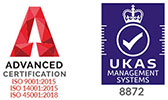Forklifts are an incredibly important aspect when it comes to the smooth running of any warehouse. When they fail to operate, it can mean a heavy blow for a warehouse owner looking to keep efficiency and productivity to an absolute maximum. When it does fail, it can be difficult to know where to turn, so here’s a quick troubleshooting guide for you. If you cannot fix the problem yourself, then consult that of a forklift professional.
1. Mast or lifting problems
The mast acts as the lifting mechanism and the frame of the forklift. If you find that a forklift isn’t raising the load properly, then it could point to hydraulic issues. It could be down to a leaking cylinder or defective parts, such as an oil filter or an oil seal. These are easy to locate and replace, but they’re also relatively inexpensive to buy and fit, even if you choose a professional to do it for you.
However, it could also be down to a lack of hydraulic fluid. This is why the forklift might be finding it difficult to raise and lower loads both quickly and smoothly. A reason for a reduction in hydraulic fluid could be a leak, so make sure you identify where it’s coming from and have it fixed or the affected part replaced to restore the forklift back to working order.
2. An overheating engine
One of the most common causes of an overheating engine is a broken or blocked radiator. Radiators can become blocked as a result of dirt and debris build-up overtime which, in turn, causes overheating. Check the radiator ports for blockages and do your best to clear them if there are any. You should be able to do this by flushing the blockage with fresh water, but be careful not to damage the radiator fins in the process.
If you’re still experiencing issues after clearing the blockages, or if there aren’t any, then there could be some corrosion present that’s preventing any coolant or water from circulating. You could either have the radiator repaired or have it entirely replaced.
You should also look to have the thermostat looked at. It should be open when the correct temperature is sensed as this allows for the coolant to flow into the engine. It’s imperative that this issue is rectified as soon as possible because it could cause the forklift to shut down completely.
3. The forklift won’t start
This could indicate more than one issue with the forklift. It could be either that the forklift is out of fuel or it’s an electrical fault. You could test which is which by filling the tank or changing the carburetor, if it has one. If your forklift is electric then there might be a battery problem, so check this first.
Look to see if it’s been connected properly or if there’s been any corrosion on the casing and terminals. You should also look to see if the electrolyte level on the battery is topped up adequately. Something else you can do is perform a battery function test. If the results come out at 80% or less, then have the battery replaced.
If this doesn’t work, then make sure you bring a competent professional in to have it checked and serviced. In the most severe cases, the forklift will need to be replaced altogether. Multy Lift are pleased to offer a wide range of options to suit your needs and budget. We have forklift hire services available as well as having second-hand forklifts and brand new vehicles on offer.
4. The tyres are worn or suspension issues
A forklift doesn’t have to travel long distances to experience wear, especially when they’re used regularly to carry considerable loads. If you notice that your tyres are experiencing wear, then make sure you have them replaced as soon as possible. This is to ensure adequate traction and forklift stability.
From a health and safety point of view, replacing worn tyres is paramount. Suspension can also be affected by the constant carrying and transporting of heavy loads. If you notice that the suspension is experiencing issues, then you must make sure that you have it checked and rectified by a professional to ensure you don’t cause any damage.
5. Faulty steering
There are many different causes for steering issues when it comes to forklifts. From steering transmission fluid tower-out gears, there are multiple things you need to check before even considering buying a replacement forklift.
The fluid transmission levels might be low, so make sure that’s topped up to the right level. This is important because if the levels are low, the steering wheel might not be able to transmit directional changes as quickly as it might have done otherwise.
Other issues that could mean you’re having trouble steering your forklift are misaligned tyres, worn out gears and a rusty steering mechanism. If you’re unsure about how to check those, then employ a professional who will be able to investigate and rectify any problems that are found, if any.
Multy Lift has over thirty years of knowledge and expertise to draw upon when it comes to the material handling industry. From machinery and services to the best practices to follow, we have a team of specialists who will always be on hand to offer the best help, advice and guidance there is. For more information about our forklifts, reach trucks, pallet trucks and more, get in touch with a member of our expert team today – we’re always pleased to hear from you.







